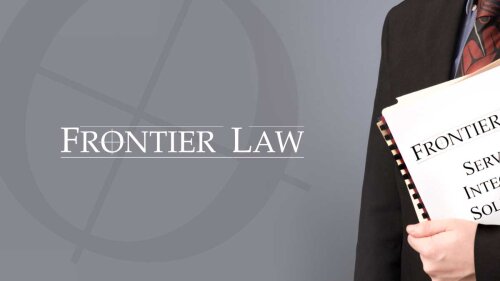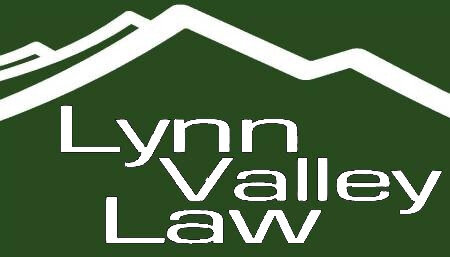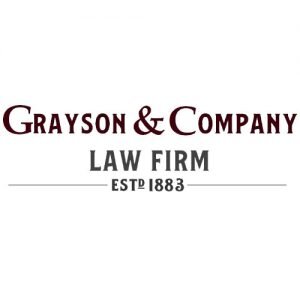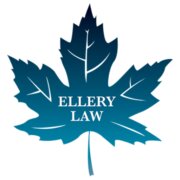Best Landlord & Tenant Lawyers in Canada
Share your needs with us, get contacted by law firms.
Free. Takes 2 min.
Free Guide to Hiring a Real Estate Lawyer
Or refine your search by selecting a city:
List of the best lawyers in Canada
About Landlord & Tenant Law in Canada
Landlord and tenant law in Canada is primarily governed by provincial and territorial legislation. These laws are designed to ensure fair and just treatment in rental relationships and to address disputes between landlords and tenants. Each province and territory has its own Residential Tenancies Act (or similar legislation) that outlines the rights and responsibilities of both parties in a rental agreement. Common areas covered include lease agreements, security deposits, maintenance and repairs, rent increase guidelines, tenant privacy, and procedures for terminating a tenancy.
Why You May Need a Lawyer
While many landlord and tenant issues can be resolved through understanding your rights and communicating effectively, there are situations where legal advice or representation may be necessary:
- Eviction Notices: If you receive an eviction notice or need to serve one as a landlord.
- Lease Disputes: Disagreements over lease terms or contract breaches.
- Maintenance and Repairs: Conflicts regarding who is responsible for repairs or improvements.
- Rent Increases: Legal limits and procedures related to increasing rent.
- Security Deposit Issues: Disputes over withholdings or return of deposits.
- Privacy Violations: Issues relating to landlord entry without proper notice.
- Discrimination: Experiences of discrimination in housing.
Local Laws Overview
Landlord and tenant laws vary across provinces and territories, but some key aspects include:
- Lease Agreements: Written agreements are preferred and often required, outlining terms and duration.
- Rent Control: Some areas have rent control laws limiting the amount or frequency of rent increases.
- Notice Periods: Requirements differ for different types of tenancy terminations (e.g., month-to-month vs. fixed term).
- Repairs and Maintenance: Landlords must maintain the property in a reasonable state of repair.
- Privacy Rights: Landlords must provide proper notice before entering the rental property.
Frequently Asked Questions
What rights do tenants have in Canada?
Tenants have the right to a safe, well-maintained property, privacy, and non-discriminatory treatment. They can raise concerns about necessary repairs and expect timely attention.
How much notice must a landlord give for termination?
Notice periods vary by province and the type of tenancy but often range from one to three months.
Can a landlord increase rent whenever they want?
No, rent increase rules depend on provincial legislation, which often includes notice periods and limits on frequency and amount.
What is a security deposit and how is it used?
A security deposit is taken by the landlord as protection against damage or unpaid rent. It must be returned at the tenancy's end unless used justifiably.
Are landlords responsible for pest control?
Yes, landlords typically must address issues such as pest control unless the tenant's actions caused the problem.
Can tenants withhold rent for repairs?
Generally, tenants should not withhold rent. Instead, they should notify the landlord, and if unresolved, seek legal resolution through appropriate channels.
Do tenants have to allow landlord entry at any time?
No, landlords must usually provide 24-48 hours notice unless it’s an emergency requiring immediate attention.
Is a written lease mandatory?
While not always mandatory, a written lease is highly recommended to avoid misunderstandings about terms and conditions.
How can a tenant dispute an unlawful eviction?
Tenants can file an application with the local tenancy board or tribunal to review the eviction’s legality.
What should be done if a tenant is discriminated against?
Tenants can file complaints with human rights commissions if they experience discrimination.
Additional Resources
For more information or assistance, consider these resources:
- Provincial or territorial residential tenancy acts and websites.
- Local tenancy boards or tribunals for dispute resolution services.
- Tenant advocacy groups and legal aid services.
- Human rights commissions for issues of discrimination.
Next Steps
If you find yourself in need of legal assistance in landlord and tenant matters, start by:
- Reviewing the relevant provincial or territorial Residential Tenancies Act for your area.
- Contacting a local lawyer who specializes in landlord and tenant law for specific legal advice or representation.
- Filing any required forms or applications to the appropriate tenancy board or tribunal.
- Documenting all communications and transactions related to your dispute or issue for legal reference.
Lawzana helps you find the best lawyers and law firms in Canada through a curated and pre-screened list of qualified legal professionals. Our platform offers rankings and detailed profiles of attorneys and law firms, allowing you to compare based on practice areas, including Landlord & Tenant, experience, and client feedback.
Each profile includes a description of the firm's areas of practice, client reviews, team members and partners, year of establishment, spoken languages, office locations, contact information, social media presence, and any published articles or resources. Most firms on our platform speak English and are experienced in both local and international legal matters.
Get a quote from top-rated law firms in Canada — quickly, securely, and without unnecessary hassle.
Disclaimer:
The information provided on this page is for general informational purposes only and does not constitute legal advice. While we strive to ensure the accuracy and relevance of the content, legal information may change over time, and interpretations of the law can vary. You should always consult with a qualified legal professional for advice specific to your situation.
We disclaim all liability for actions taken or not taken based on the content of this page. If you believe any information is incorrect or outdated, please contact us, and we will review and update it where appropriate.
Browse landlord & tenant law firms by city in Canada
Refine your search by selecting a city.
















